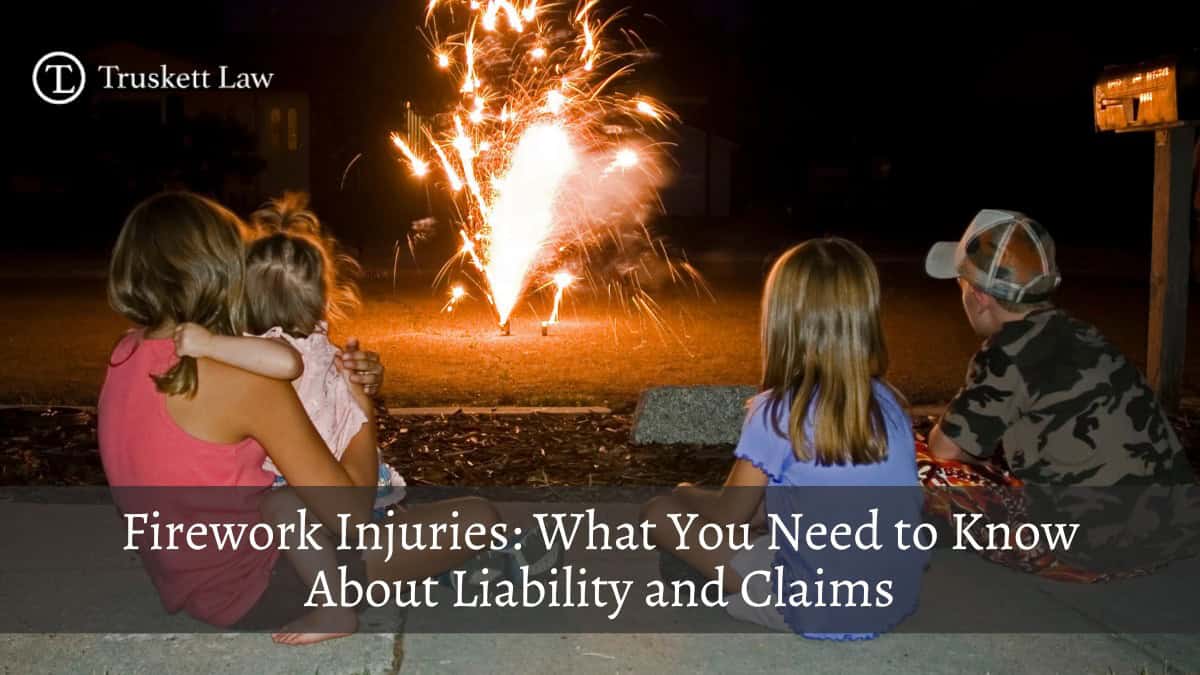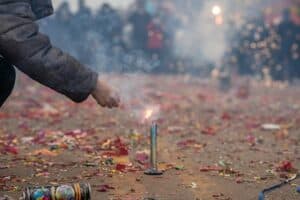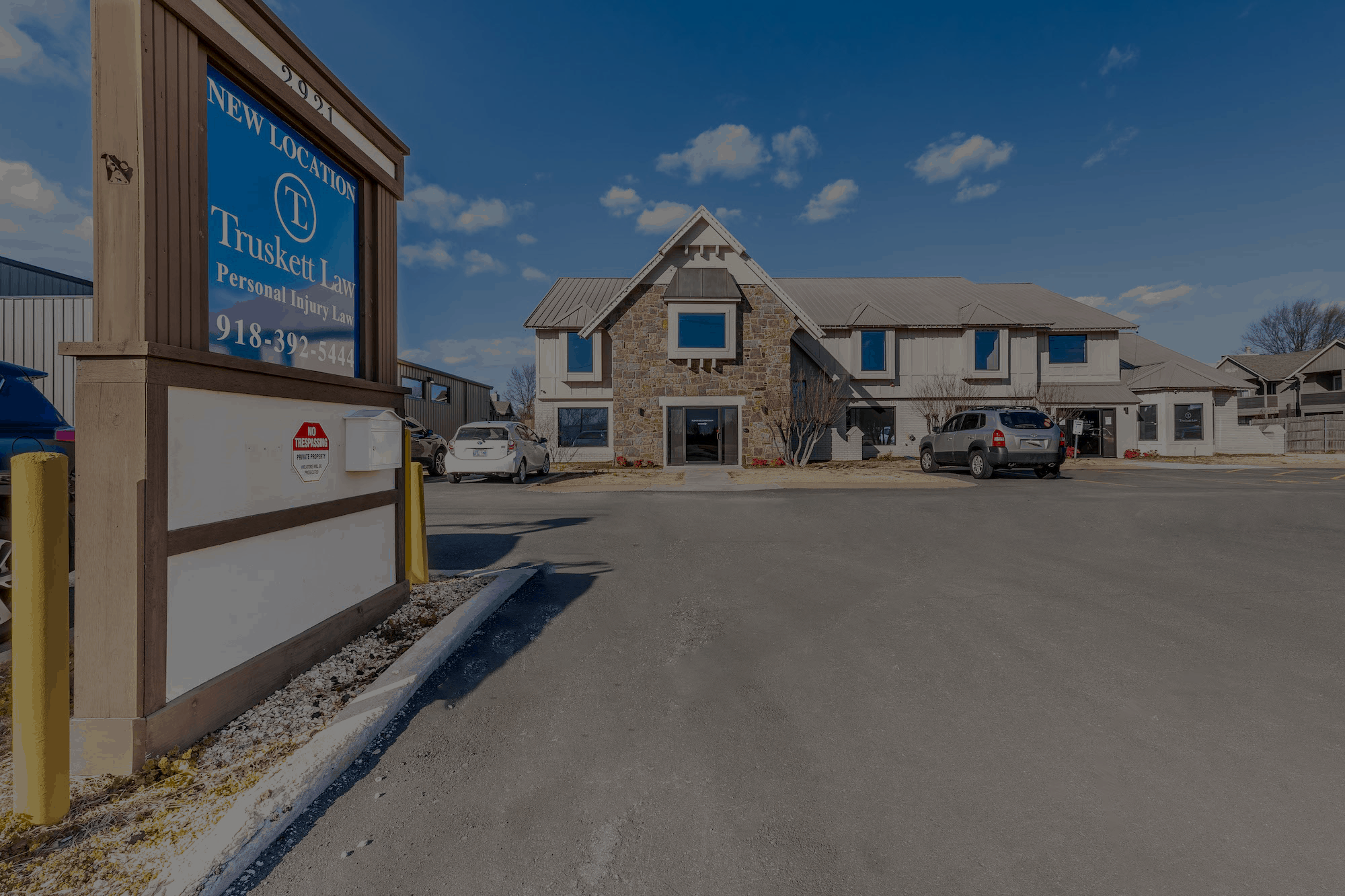
03 Jul Firework Injuries: What You Need to Know About Liability and Claims
Fireworks are synonymous with celebration – Fourth of July explosions, New Year’s Eve skies, and festive events light up the night. Yet behind the spectacle lies a less glamorous reality: firework-related injuries. Burns, lacerations, eye trauma, and even fatalities are all too common.
When fireworks cause harm, determining who’s liable and how to pursue a claim becomes critical. In this blog post, we will explore the key aspects of liability and claims after firework injuries, helping you navigate this complex legal landscape.
1. Types of Firework Injuries
Firework injuries don’t just mean minor burns – they can be severe and life-altering. Common injuries include:
- Thermal Injuries: Severe burns to the hands, feet, face, or eyes.
- Explosive Trauma: Hearing loss or facial disfigurements from close-range blasts.
- Fragmentation Wounds: Lacerations caused by shrapnel or exploding casings.
- Chemical Burns: Skin or respiratory damage from noxious chemicals.
- Eye Injuries: From debris or powder, leading to blindness or retinal damage.
- Fall-Related Accidents: Injured individuals may trip while trying to escape.
Each injury type brings unique medical needs and considerations when seeking compensation.

2. Who May Be Held Liable?
Determining who’s responsible depends on who controlled or supplied the fireworks and what went wrong. Potentially liable parties include:
- Firework Operators/Organizers: When professional displays injure attendees due to negligence in setup, execution, or crowd control.
- Property Owners: If fireworks are launched from their property or they host a show without proper safety measures.
- Retailers/Manufacturers: When defective fireworks, improper labeling, or safety claim misrepresentations cause harm.
- Individuals: Users who act negligently—such as lighting fireworks in unsafe conditions or using banned items—can be held accountable.
A combination of these parties may share liability depending on the circumstances.
3. Establishing Negligence in Firework Accidents
To hold someone legally liable, a plaintiff must prove negligence, specifically:
- Duty of Care: The defendant owed a reasonable standard of safety.
- Breach of Duty: They failed to meet that standard, for example, mismanaged a fireworks launch zone or sold dangerously defective fireworks.
- Causation: Their breach directly caused your injury.
- Damages: Actual losses occurred—medical bills, lost income, or pain and suffering.For instance, if a vendor sells fireworks labeled “safe for backyard use” but they explode unexpectedly, causing injury, that breach may satisfy all elements of negligence.
4. Types of Liability Claims
Depending on the responsible party, you can pursue different claim types:
- Personal Injury Claims: Against organizers, individuals, or property owners for negligence during fireworks use.
- Products Liability Claims: Against manufacturers or retailers for defective or dangerous fireworks. These can involve:
- Design Defects: inherently unsafe product design.
- Manufacturing Defects: a mistake or flaw during production.
- Marketing Defects: inadequate warnings or misuse of instructions.
Understanding which party is liable and what legal theory applies is essential for a successful claim.
5. Steps to Take After a Firework Injury
Seek Medical Attention Immediately
Prioritize health – visit an emergency room, burn center, or urgent care facility to prevent infection and treat injuries. Prompt medical care not only protects your health but also creates official medical records that are crucial for any legal claim.
Even minor injuries can worsen over time, so it’s wise to have a professional evaluation immediately.
Preserve the Evidence
Keep the defective fireworks, packaging, instructions, or photos of flames or setups. These help prove fault and defectiveness. Avoid tampering with the remains of the firework or its packaging, as it may serve as essential evidence. Also, take note of any identifying details like brand names, serial numbers, or batch codes.
Document the Scene and Injuries
Take photos of your injuries, the setting, and any other hazards. Include objects that caused harm and note safety measures, or their absence. Capture wide-angle shots of the area and close-ups of any evidence to provide full context. The more visual documentation you have, the stronger your claim will be.
Record What Happened
Write down everything you remember – who lit the fireworks, disregard for warnings, or lack of safety gear. Include the time, location, weather conditions, and whether alcohol or other distractions played a role. These details can fade quickly, so jotting them down immediately is key for accuracy.
Collect Witness Information
Passersby or attendees can serve as witnesses; collect their names and contact information. Ask them for a brief statement about what they saw and whether they noticed any reckless or unsafe behavior. Witness accounts can help corroborate your version of events during a claim or legal proceeding.
Notify Relevant Parties
6. Insurance Considerations
- Homeowners’ Insurance often covers accidents on private property if the injured person has permission to be there (premises liability).
- Event Insurance may apply for public displays or scheduled professional shows.
- Automobile or Health Insurance may cover treatments, but may seek reimbursement for claims against responsible parties.
Be aware of policy exclusions, such as bans on “explosives.” Consulting an attorney can help clarify your coverage.
7. Comparing Settlement and Trial
Most firework injury cases are resolved through settlement, avoiding court. Settlements are quicker, but:
- They typically cap payment amounts.
- Complex liability may warrant a lawsuit to obtain full compensation for long-term care or major trauma.
If a settlement doesn’t cover ongoing needs, a personal injury lawsuit may be necessary.
8. Working with a Skilled Injury Lawyer
Hiring a lawyer is essential in firework injury cases:
- They evaluate the responsible parties—organizer, property owner, vendor, or manufacturer—and pursue all possible claims.
- Attorneys connect plaintiffs with medical experts and accident reconstruction specialists and negotiate with insurers or defense counsel.
- Most attorneys work on contingency—no upfront fee unless they win compensation.
9. Compensation You Can Claim
Victims of firework injuries may seek:
- Medical Expenses: Immediate and ongoing care, rehabilitation, prosthetics, and future surgeries.
- Lost Income: From immediate disability or longer-term occupational issues.
- Pain & Suffering: Physical and emotional trauma, including PTSD or anxiety.
- Disfigurement & Loss of Enjoyment: Compensation for visible scars or reduced lifestyle quality.
- Punitive Damages: In some extreme cases, if conduct was egregiously reckless or maliciously harmful.
10. Statute of Limitations and Legal Deadlines
Firework injury claims must be filed within a specific timeframe, typically 2–3 years from the injury date, varying by state. Some cases, especially against government entities or for product liability, may have shorter deadlines.
Filing too late usually means forfeiting your right to compensation. Consulting a lawyer early ensures you act within all legal deadlines.
11. Special Considerations for Minors
If a child is injured by fireworks, parents or guardians can file claims on their behalf, including medical expenses, future care, and emotional distress. Courts may require a guardian or “guardian ad litem” to protect the child’s interests in legal proceedings.
12. Reporting Defective Fireworks
If you suspect fireworks were defective, report them to the Consumer Product Safety Commission (CPSC) at saferproducts.gov. This can lead to recalls or investigations and may strengthen your product liability case.

Don’t Let a Firework Injury Derail Your Life
Fireworks bring joy, but they can also cause devastation. If injured, understanding your rights and legal remedies is critical to recovery.
Whether you’re dealing with negligence from an event organizer, a property owner, or a retailer selling dangerous fireworks, taking prompt action—documenting injuries, preserving evidence, and consulting a skilled attorney—matters.
With the right legal support, you can hold responsible parties accountable and secure compensation for medical costs, lost income, emotional distress, and more.
At Truskett Law, we’re here to help if fireworks have caused you or a loved one harm. Don’t wait to take control of your recovery and protect your legal rights.
Our experienced team will advocate for you every step of the way, ensuring your voice is heard and your claim is handled with care. Reach out today to start moving forward with confidence.


Sorry, the comment form is closed at this time.